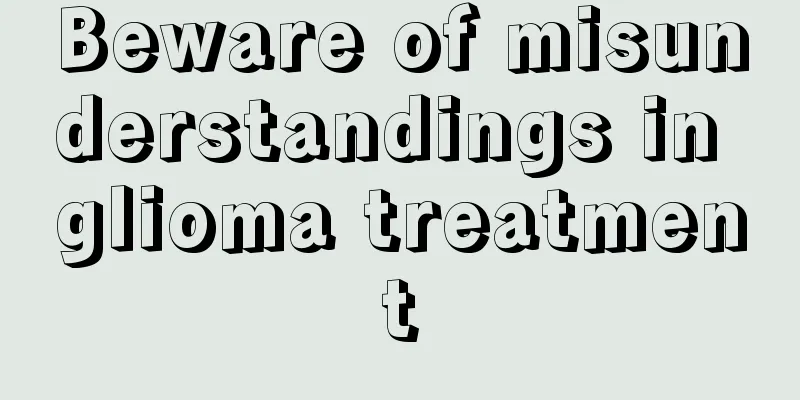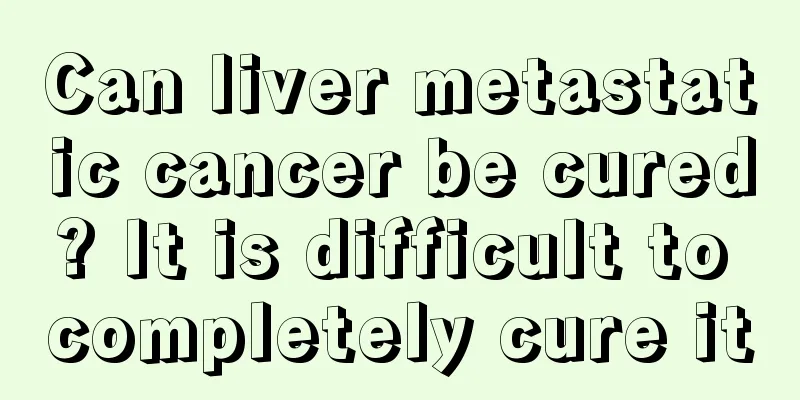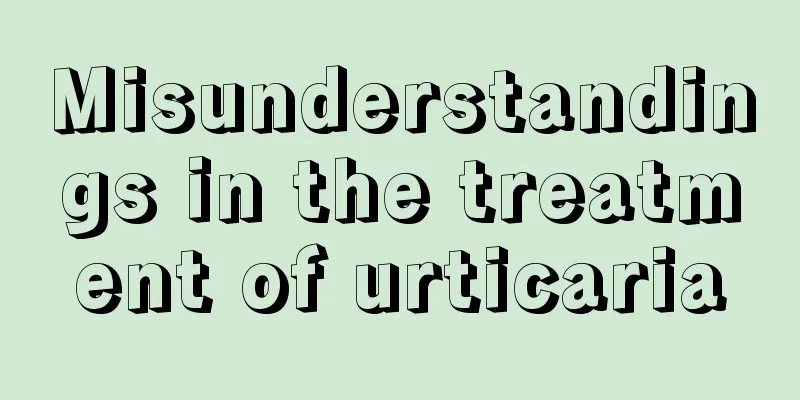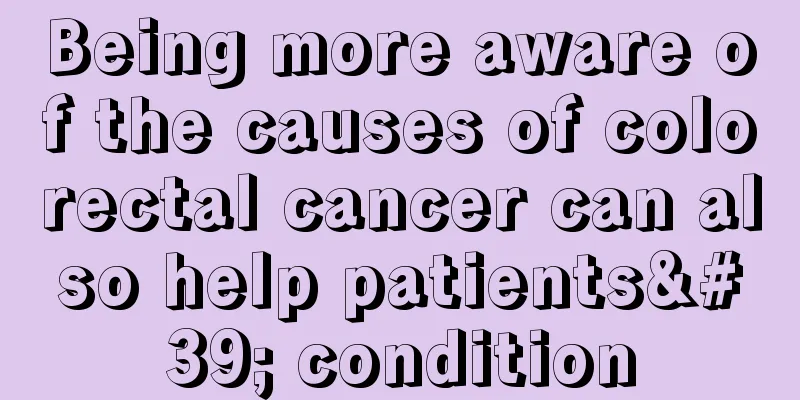What are the symptoms of fear and anxiety disorders?
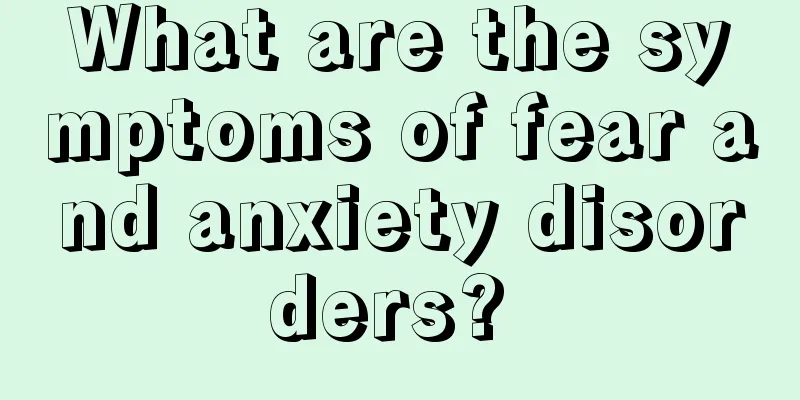
|
When the pace of life generally increases, many people will "get into" some problems - mental illness, and anxiety disorder is the most common one. What everyone is more familiar with is depression, and many people cannot distinguish between the concepts. In fact, there are differences between anxiety and depression. Some people often experience fear and are afraid to try new things. This is sometimes a symptom of anxiety disorder. So, what are the symptoms of fear and anxiety disorders? Fear Anxiety Disorder Symptoms 1. Clinical manifestations of panic disorder (1) Panic attack: The typical manifestation is that the patient suddenly experiences intense fear during daily activities, as if he is about to die (feeling of near-death) or about to lose his mind, which is unbearable for the patient. At the same time, he feels palpitations, as if the heart is about to jump out of the chest, and has chest tightness, chest pain, shortness of breath, and a feeling of suffocation due to throat blockage. Therefore, the patient screams, calls for help, or runs outside. Some are accompanied by autonomic nervous system symptoms such as hyperventilation, dizziness, sweating, facial flushing or paleness, tremor, numbness of hands and feet, gastrointestinal discomfort, etc.; some are also accompanied by painful experiences such as personality disintegration and reality disintegration. There is usually no obvious trigger or cause, it is unpredictable, and between attacks there are no other obvious symptoms except the fear of another attack. The onset is sudden, usually reaches a peak within 10 minutes, lasts no longer than 1 hour, and can resolve on its own. The patient is conscious during an attack and can recall the attack afterwards. (2) Anticipatory anxiety: Patients often worry about another attack during the interval between attacks, so they often feel uneasy and may also experience some symptoms of autonomic dysfunction. (3) Seeking help and avoidance behavior: During a panic attack, the patient cannot bear the intense fear and therefore requests immediate help. During the intervals between attacks, the patient avoids certain activities, is unwilling to stay home alone, is unwilling to go out alone, etc., for fear that he or she will not receive help. Patients with panic attacks often have symptoms of depression and increased suicidal tendencies, which should be taken seriously. 2. Clinical manifestations of generalized anxiety disorder It is characterized by anxiety and nervousness without a clear object or specific content (free-floating anxiety is also called floating anxiety), or excessive worry or distress about certain problems in real life (excessive worry and expectation). The patient's basic inner experience is fear, such as anxiety, uneasiness, and even extreme panic. In fact, there is no threat or danger. The patient's nervousness and anxiety are disproportionate to reality and are often accompanied by autonomic hyperfunction, motor tension and excessive vigilance. (1) Anxiety and worry: manifested as worry about unpredictable dangers that may occur in the future. The patient has a premonition of inexplicable anxiety and tension, and becomes restless. If the anxiety and fear do not have a clear objective object and specific and fixed content, it is called floating anxiety. If you often worry about one or two unrealistic threats, or unfortunate events that may happen to yourself or your relatives and friends in life, such as worrying that your family will have a car accident after going out, this kind of anxiety is very disproportionate to reality and is called worried expectation, which is the core symptom of generalized anxiety. This type of patient often has a premonition of panic, and is upset, restless, restless, and worried all day long, as if a disaster is about to happen, and they always worry about the worst outcome. (2) Tension and fear: tense expression and excessive attention to changes in the surrounding environment. (3) Motor restlessness: Almost every patient has motor restlessness to varying degrees, manifested as nervousness, restlessness, rubbing hands and feet, increased small movements, inability to concentrate, frequent pacing, and constant anxiety. There may also be tremors in the eyelids, facial muscles, and fingers. Patients should learn to talk and vent appropriately. Speaking out the things that cause pain in their subconscious mind can reduce or eliminate anxiety. You can also write a diary, sing, read articles, draw, etc. Don’t think too much at home, as this will make you more miserable. Don’t always focus on the things that make you unhappy. Think more about happy things and do something meaningful. |
<<: What is causing the feeling of panic, nausea and vomiting?
>>: What causes chest tightness, difficulty breathing, and irregular heartbeat?
Recommend
How to treat ascites caused by pancreatic cancer
From the onset of the disease, adverse symptoms b...
What to do if you have a headache because your hair is not blow-dried
Not blowing your hair dry has a great impact on t...
What are the tips for removing acne from oily skin
Female friends are reluctant to go out after they...
Why can't you drink water before going to bed
Can you drink water before going to bed? This has...
Is nasopharyngeal cancer contagious?
Is nasopharyngeal cancer contagious? Nasopharynge...
Symptoms of deficiency of the five internal organs
When problems occur in the organs inside the body...
Tips for removing freckles with white vinegar
For women who love beauty, stripes are unacceptab...
Does early laryngeal cancer need chemotherapy after surgery?
The treatment method should be based on the scope...
I ate too much and felt uncomfortable. What should I do?
When it comes to diet, you must pay attention to ...
What are the best treatments for acne
Acne is a common skin problem, especially during ...
Why does beef turn green?
As we all know, normal beef should be bright red,...
Mycoplasma genitalium positive
Many people have a vague understanding of mycopla...
At what stage does nasopharyngeal carcinoma cause nasal congestion
At what stage does nasopharyngeal carcinoma cause...
Health preservation methods during the End of Heat season
The Beginning of Autumn season is a period of tra...
Analysis of the causes of esophageal obstruction
There are various human diseases, especially thos...

